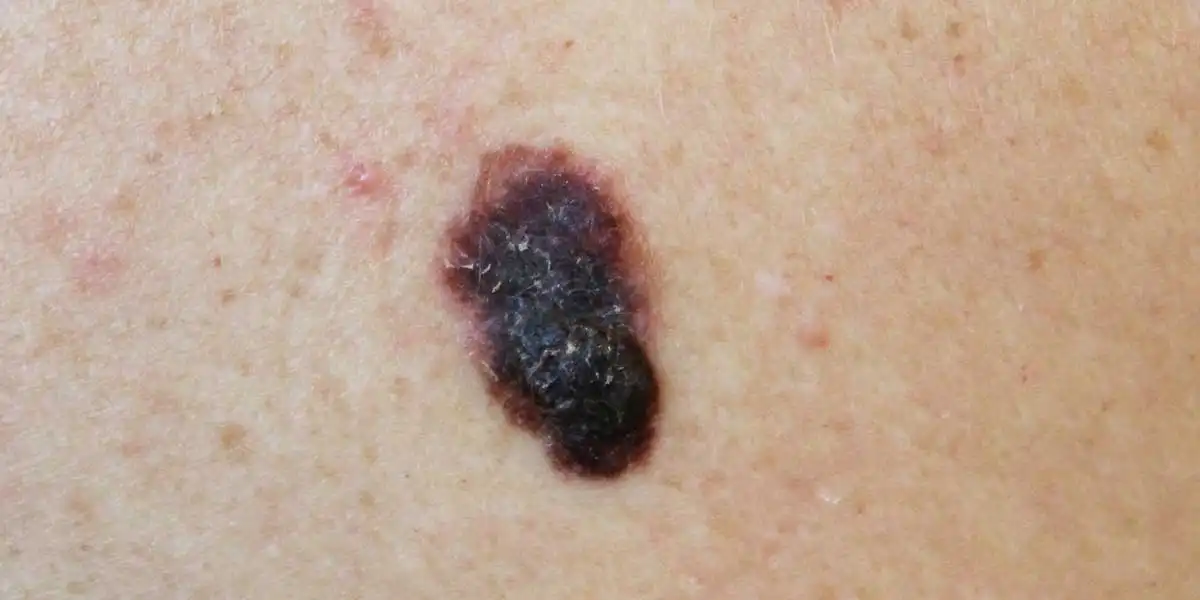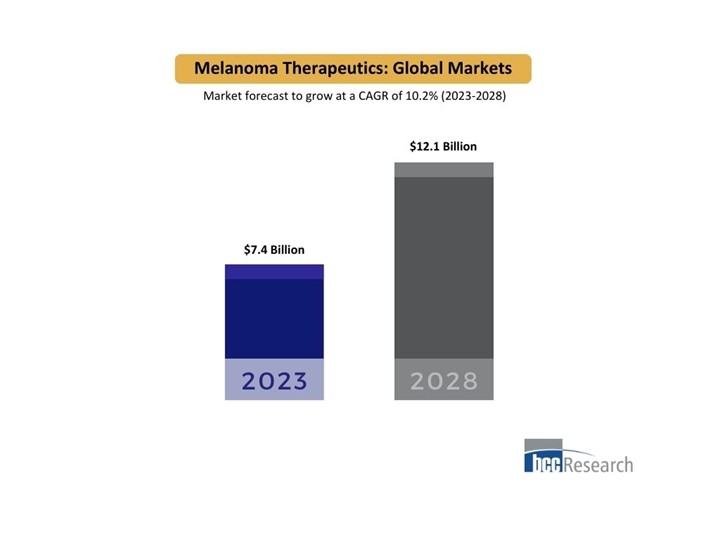
Apr 3, 2024
Blog Life Sciences Melanoma: Beat It with Smart Treatments
Melanoma is the most dangerous form of skin cancer. It is the fifth most common cancer overall, behind breast, lung, prostate, and colorectal. It can rapidly grow and spread to any part of the body. Melanoma is most often caused by exposure to ultraviolet (UV) rays. Overexposure to UV rays — whether from the sun, sun lamps, or tanning beds — damages the DNA of genes that control skin-cell growth. These damaged genes (mutations) instruct cells to multiply rapidly and form malignant tumors. Melanoma often looks like a mole. It is usually black or brown, but it can also be skin-colored, purple, blue, red, pink, or white.
The melanoma sector is advancing, particularly in melanoma drugs and diagnostics markets. As the melanoma market expands, early detection and effective treatment options become more important than ever, impacting patient outcomes and survival rates.
The global market for melanoma therapeutics is estimated to increase from $7.4 billion in 2023 to reach $12.1 billion by 2028, growing at a compound annual growth rate (CAGR) of 10.2% from 2023 through 2028 during the forecast period. Melanoma therapeutics featuring cutting-edge technology that are user-friendly and offer precise treatment options are witnessing a surge in popularity.

The global market for melanoma therapeutics is estimated to increase from $7.4 billion in 2023 to reach $12.1 billion by 2028, at a compound annual growth rate (CAGR) of 10.2% from 2023 through 2028.
Amgen Inc. - Amgen is a biotech company headquartered in Thousand Oaks, California. Founded in 1980 by scientists, including George B. Rathmann, the company focuses on developing and commercializing therapies in areas like oncology, hematology, inflammation, and cardiovascular diseases. Amgen is known for its innovative work in biological drugs such as monoclonal antibodies and recombinant proteins.
Bristol-Myers Squibb (BMS) Co. - Bristol-Myers Squibb Co. (BMS) is a well-known biopharmaceutical company with its headquarters in New York City, United States. The company was established in 1989 through the merger of Bristol-Myers Company and Squibb Corporation. Over the years, BMS has become a major player in the pharmaceutical industry. BMS reported revenues of $46.2 billion, which were driven by in-line products such as Eliquis and Opdivo, and a new product portfolio that included Opdualag, Abecma and Reblozyl.
Pfizer inc. - Pfizer Inc. is one of the world's largest pharmaceutical companies, known for its wide range of medications and healthcare products. It was founded in 1849 by Charles Pfizer and Charles F. Erhart in Brooklyn, New York, United States. Originally a chemicals business, pfizer transitioned into pharmaceuticals, eventually becoming the global powerhouse it is today. Pfizer’s biopharmaceutical segment designs and manufactures various drugs for neurodegenerative diseases.
Novartis Ag - Novartis AG is a multinational pharmaceutical company headquartered in Basel, Switzerland. Founded in 1996 through the merger of Ciba-Geigy and Sandoz, Novartis has grown into one of the largest pharmaceutical companies globally, with a focus on research, development, manufacturing, and commercialization of innovative healthcare solutions. The company's diverse portfolio encompasses a wide range of medications and healthcare products, addressing various medical conditions such as cardiovascular diseases, oncology, neuroscience, immunology, dermatology, respiratory diseases, and ophthalmology.
Merck & co. Inc. - Merck & Co., Inc. is a leading global pharmaceutical company headquartered in Kenilworth, New Jersey, United States. Founded in 1891 by George Merck, Merck & Co. has established itself as one of the largest and most respected pharmaceutical companies in the world. Merck focuses on researching, developing, manufacturing, and commercializing innovative medicines and vaccines to address a wide range of medical needs across therapeutic areas such as oncology, vaccines, infectious diseases, cardiovascular diseases, diabetes, and animal health. The company anticipates full-year 2023 worldwide sales to reach between $57.2 billion and $58.7 billion.
Melanoma, the deadliest form of skin cancer, is a significant public health challenge as the fifth most common cancer worldwide. UV exposure is a major risk factor for DNA damage and increased tumor formation. Early detection and successful treatment are critical in improving patient outcomes and survival rates with melanoma. The melanoma sector is making substantial development, notably in terms of melanoma medications and diagnostics. As the market grows, there is a greater emphasis on early detection and the implementation of novel treatment strategies. The global melanoma treatments market is expected to increase significantly, from $7.4 billion in 2023 to $12.1 billion in 2028, with a compound annual growth rate (CAGR) of 10.2% for the projection period. The melanoma therapeutics sector is leading the charge in developing a variety of treatment methods, including immunotherapy, targeted therapy, new interventions, and combination tactics. These discoveries can potentially reshape the melanoma therapy landscape, giving patients and healthcare providers new hope.
Learn More and Take Action:
Consider becoming a member of the BCC Research library and gain access to our full catalog of market research reports in your industry. Not seeing what you are looking for? We offer custom solutions too, including our new product line: Custom Intelligence Services.
Contact us today to find out more.

Amrita Kumari is a Senior Executive Email Marketer at BCC Research, with a bachelor’s degree in computer applications. She specializes in content creation and email marketing.
In today’s fast-paced biomedical world, researchers and pharmaceutical companies...

Radiopharmaceuticals represent a cutting-edge frontier in modern medicine, offer...

Implantable Remote Patient Monitoring (IRPM) devices are revolutionizing healthc...

We are your trusted research partner, providing actionable insights and custom consulting across life sciences, advanced materials, and technology. Allow BCC Research to nurture your smartest business decisions today, tomorrow, and beyond.
Contact UsBCC Research provides objective, unbiased measurement and assessment of market opportunities with detailed market research reports. Our experienced industry analysts assess growth opportunities, market sizing, technologies, applications, supply chains and companies with the singular goal of helping you make informed business decisions, free of noise and hype.